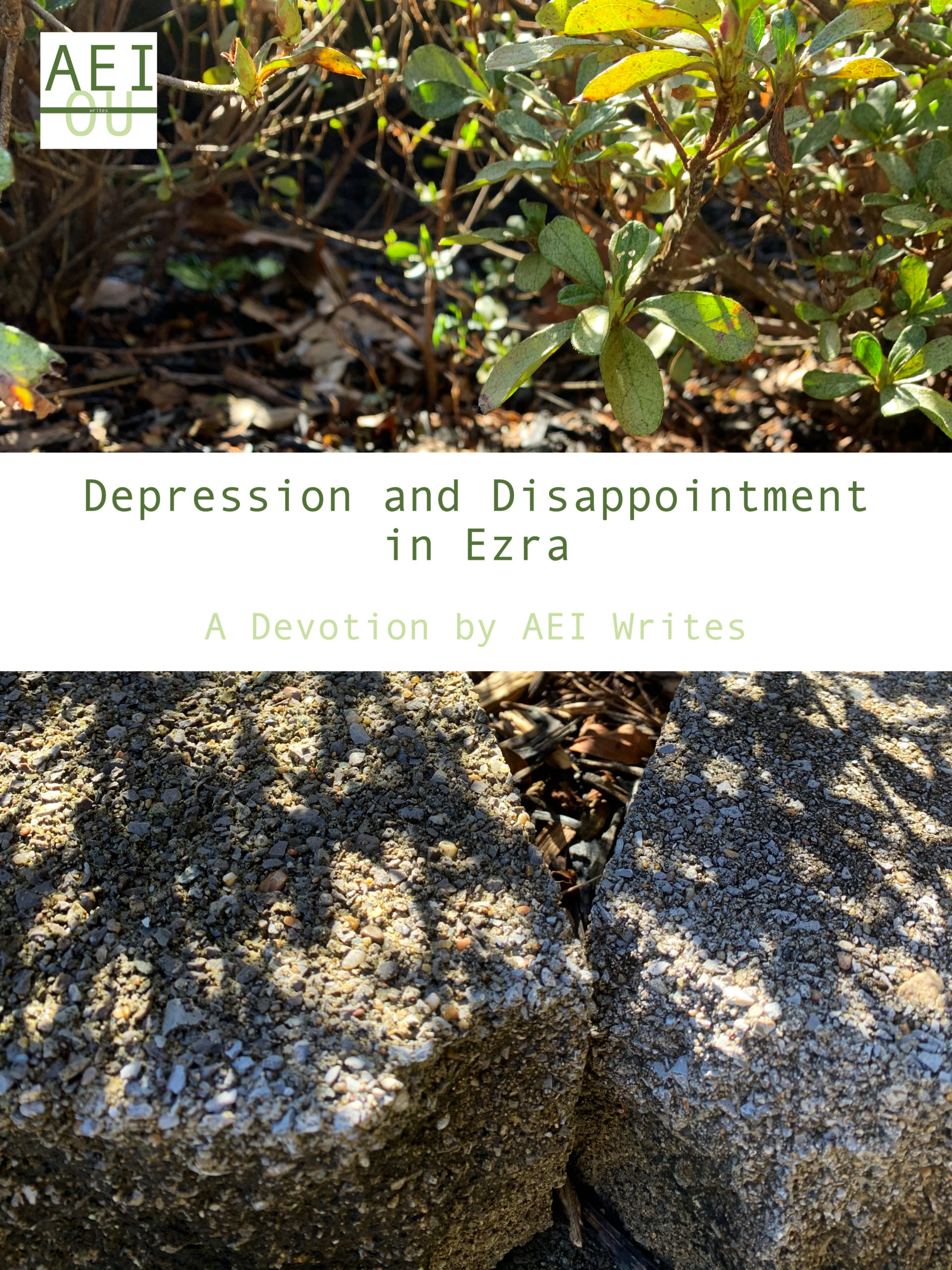I still have a few more observations to make about Gideon’s story. However, I read Mrs. Brenda’s excellent post on expectation versus reality this afternoon. It reminded me so much of my Bible reading in Ezra yesterday that I wanted to take a quick break from Gideon to discuss depression and disappointment.
The Passage
When the builders laid the foundation of the temple of the LORD, the priests in their vestments and with trumpets, and the Levites (the sons of Asaph) with cymbals, took their places to praise the LORD, as prescribed by David king of Israel. With praise and thanksgiving they sang to the LORD:
“He is good; his love toward Israel endures forever.”
And all the people gave a great shout of praise to the LORD, because the foundation of the house of the LORD was laid. But many of the older priests and Levites and family heads, who had seen the former temple, wept aloud when they saw the foundation of this temple being laid, while many others shouted for joy. No one could distinguish the sound of the shouts of joy from the sound of weeping, because the people made so much noise. And the sound was heard far away.
Ezra 3:10-13 NIV
Some Context
The last four kings of Judah rejected God and refused to listen to any of His prophets. Thus, God allowed King Nebuchadnezzar to take over the Israelites and destroy Jerusalem. The last of the Israelites entered exile in Babylon for 70 years (2 Chronicles 36:21). Then, in God’s grace, He caused King Cyrus to send the Israelites back to Judah to rebuild the temple.
Now, the oldest Israelites mentioned in Ezra 3 remembered the temple designed by David and built by Solomon. That original temple signified the glory days of Israel. The temple glittered with mementos of God-given victories and wealth. Clearly, the temple was a sight to behold even after the Israelites had desecrated it. The Israelites who remembered the original temple felt bittersweet as they laid the new foundation. Sure, King Cyrus allowed them to rebuild God’ temple, but the new temple didn’t display the same power and wealth. The Israelites no longer controlled the building of their own temple to God. They depended entirely on a foreign king’s goodwill.
The Difference in Depression and Disappointment

This article on Psychology Today explains that while disappointments fade with time, depression does not. Perhaps the mournful Israelites merely grieved the loss of the original temple as they built the new one. However, I imagine some of the Israelites did struggle with depression triggered by exile. God did not restore Israel’s political status as they probably hoped. Instead, God started where the Israelites struggled most. He gave them back the temple, the central point of Israel’s existence.
The book of Ezra does not condemn the Israelites who mourned as they laid the temple’s foundations. In fact, Ezra seems to support the idea of feeling all of the emotions involved in the situation. God knew Israel’s hopes for political restoration, yet He also knew that they needed religious restoration first. I imagine God felt compassion for the Israelites who remembered the glory days. He just knew that they needed Him more.
Just as God understood the Israelites, He understands our conflicted emotions during this COVID-19 time. He feels compassion for the disappointed hearts. God does not fear or shy away from the darker sides of ourselves that we are facing. Instead, He knows we need to return to Him. He’s going to start by rebuilding us where we each need it most.

